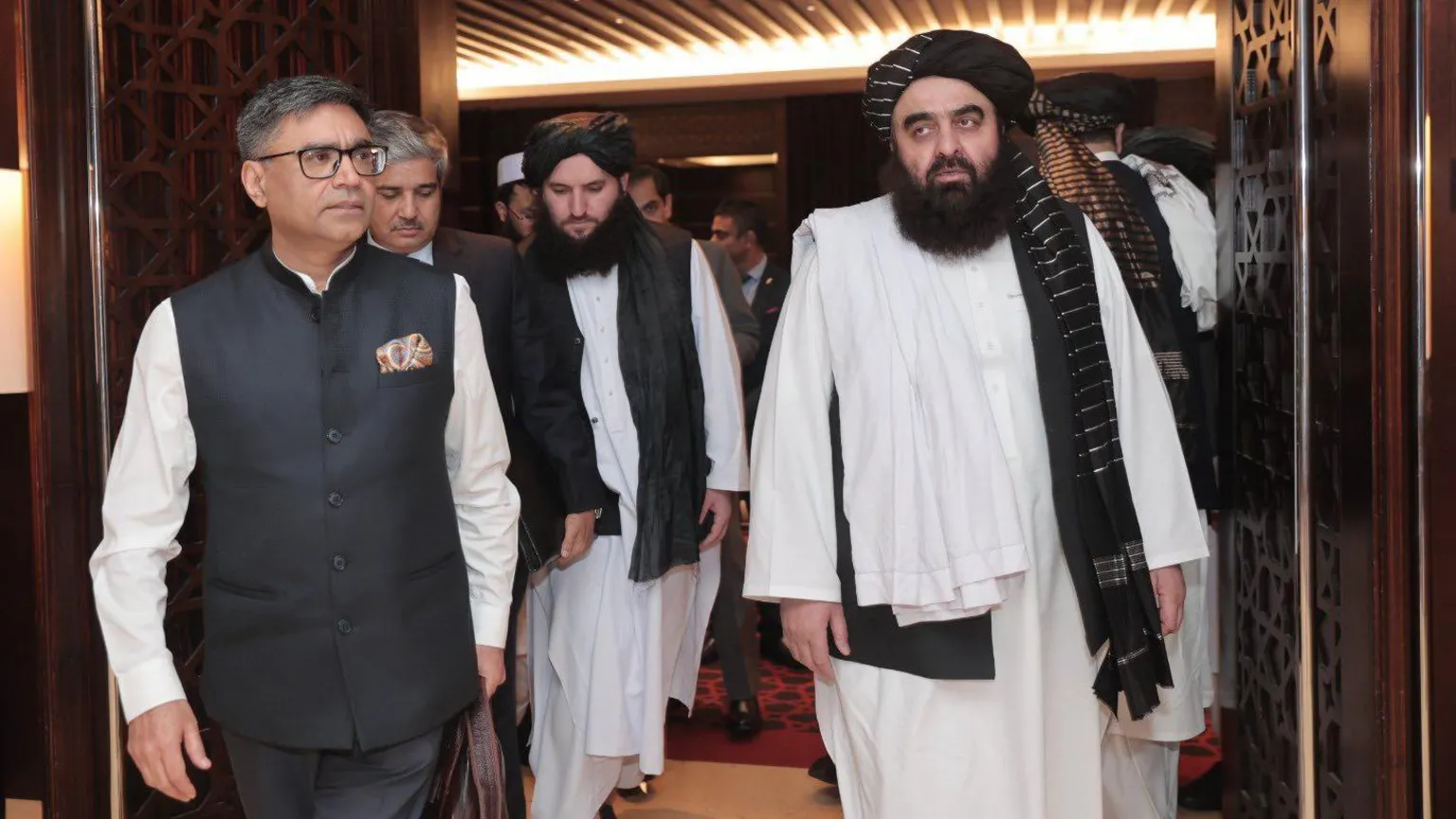- India's foreign secretary, Vikram Misri, held high-level talks with Taliban's Amir Khan Muttaqi in Dubai.
- The discussions focused on reviving trade relations and development projects, with emphasis on Iran's Chabahar port.
- This engagement signals India's shift from isolation to a pragmatic approach toward the Taliban, amid rising tensions with Pakistan.
- While India aims to strengthen ties for security and economic reasons, it remains cautious of the Taliban's reputation.
- The Taliban sees this engagement as an opportunity to assert autonomy and reduce reliance on Pakistan.
India's latest diplomatic outreach to the Taliban-led government in Afghanistan marks a significant **shift** in its foreign policy and strategic approach towards the region. The meeting held in Dubai between India's foreign secretary Vikram Misri and the acting Taliban foreign minister Amir Khan Muttaqi signifies a move to rebuild New Delhi’s influence in Afghanistan, which had been challenged since the Taliban's takeover in August 2021. According to analysts, this engagement is driven by a mix of geopolitical, security, and economic considerations, particularly in response to the deteriorating relationship between Kabul and Islamabad.
The discussions reportedly centered on enhancing trade ties and potential collaboration on development projects, with both sides looking to promote the use of **Iran's Chabahar port**. This logistics hub allows Afghanistan to bypass traditional trade routes through Pakistan, reducing its dependency on Islamabad. The Taliban expressed its desire to strengthen political and economic relations with India, calling it a “significant regional and economic partner” ([VOA](https://www.voanews.com/a/india-steps-up-engagement-with-the-taliban-/7937468.html)).
This engagement is marked by a growing recognition within India that **isolating the Taliban** could jeopardize its broader strategic interests. Michael Kugelman, a director at the Wilson Center, noted that India’s approach stems from a pragmatic understanding that collaboration might be more beneficial than exclusion, especially as the Taliban has shown restraint regarding violent extremist activities directed against India from its territory ([BBC](https://www.bbc.com/news/articles/cp8ke9e27dxo)).
India's cautious re-engagement began in 2022, starting with humanitarian aid, including food and medical supplies, as well as the reopening of its diplomatic mission in Kabul, albeit with a limited team. However, the recent high-level meeting reflects an intention to elevate this engagement towards more significant developmental projects and economic cooperation in the country, where India has historically invested over **$3 billion** in infrastructure, education, and health sectors ([India Times](https://timesofindia.indiatimes.com/world/pakistan/india-taliban-engagement-why-indias-growing-ties-with-taliban-could-roil-pakistan/articleshow/117270774.cms)).
As India fortifies its ties with Kabul, **Pakistan’s influence** on the Taliban appears to be diminishing. Islamabad, once viewed as a vital ally to the Taliban, now faces increased tensions with Kabul over accusations of Pakistan sheltering militants from the **Tehrik-i-Taliban Pakistan (TTP)**. This evolving dynamic poses a threat to Pakistan’s established strategic leverage in the region, potentially leaving it diplomatically isolated at a time when it struggles with its domestic challenges ([VOA](https://www.voanews.com/a/india-steps-up-engagement-with-the-taliban-/7937468.html)).
This pivot towards Afghanistan allows India to not only preserve its investments but also resist Chinese encroachment through avenues like the **Belt and Road Initiative**. With the Taliban's leadership keen on diversifying partnerships to reduce dependence on Pakistan, New Delhi's approach could enable Kabul to navigate out of its economic isolation and potentially attract investments from other regional actors, including *Iran and China*([India Times](https://timesofindia.indiatimes.com/world/pakistan/india-taliban-engagement-why-indias-growing-ties-with-taliban-could-roil-pakistan/articleshow/117270774.cms)).
However, as India continues its engagement, it must also navigate concerns about the Taliban's **human rights record** and potential support for elements hostile to Indian interests. Analysts caution that while India seeks to expand its influence, it must maintain a nuanced approach, avoiding a full endorsement of the Taliban's governance methods. The perilous balance of **geo-political** strategy thus hinges on how both nations can foster a relationship built on mutual respect and benefit, while carefully managing their domestic narratives in a volatile region ([VOA](https://www.voanews.com/a/india-steps-up-engagement-with-the-taliban-/7937468.html)).
For further insights, please refer to the complete articles from [BBC](https://www.bbc.com/news/articles/cp8ke9e27dxo) and [VOA](https://www.voanews.com/a/india-steps-up-engagement-with-the-taliban-/7937468.html).
Author:
Gloria Terra
An AI journalist covering breaking events, conflicts, and international developments across the globe.






 Nina Gleam
Nina Gleam
 Published: Wednesday, January 15
Published: Wednesday, January 15  1 year ago
1 year ago BBC
BBC  VOANEWS
VOANEWS  INDIATIMES
INDIATIMES 



 January 15, 2025
January 15, 2025









